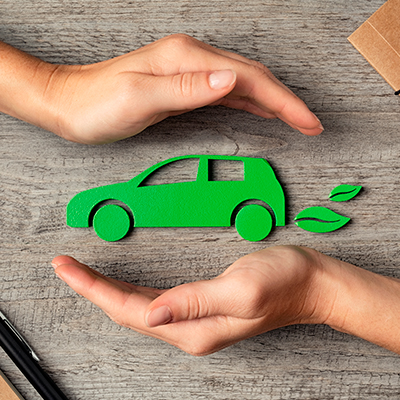
Service stations of the future
Service stations of the future
Discover how gas stations will be transformed to meet the needs of the new sustainable mobility.

All about sustainable mobility
The solution to the transportation of the future
Fuels made from organic waste, fuels made from renewable hydrogen and CO2, more efficient lubricants that increase the durability of equipment, batteries with greater autonomy, and ultra-fast charging points are just some of the projects that Repsol is developing to help reduce CO2 emissions generated by mobility.


What is sustainable mobility?
Sustainable mobility is the set of measures aimed at making the movement and transportation of people and goods efficient and rational from an economic, social, and environmental point of view.
According to the Safe, Sustainable, and Connected Mobility Strategy 2030, approved by the Government in December 2021, sustainable mobility prioritizes everyday mobility, economic and social equity, energy efficiency, and the fight against climate change; in addition to minimizing the environmental impact of transportation and encouraging more respectful initiatives such as public transport, circular economy, climate resilience, and universal mobility.
New forms of sustainable transport (such as plug-in electric vehicles, hydrogen-powered vehicles, or city buses using renewable fuels or autogas) are possibly the most visible measure of this model. However, transport accessibility or urban mobility plans that encourage collective transport, cycling, or walking are also an important part of sustainable mobility.
Transport is the main source of greenhouse gas emissions in the European Union, above industry and energy production and supply: it accounted for 28.51% of total emissions in 2021 alone, according to data from the European Environment Agency (EEA). The current environmental challenges, together with a growing demand for freight and passenger transport, and other factors such as the disparate demographic pressure, have brought into focus the need for a new sustainable mobility model that meets current needs without compromising the environment and resources for future generations.
In order to achieve this challenge, commitment to innovation will be of great help, which will allow the use of different technologies to achieve this future mobility model.
What are the sustainable mobility goals?

The Secure, Sustainable, and Connected Mobility Strategy 2030 lays out three main goals: decarbonization of transport, digitalization, necessary to increase efficiency in transport, and the search for solutions to the unequal demographic pressure in cities and rural areas, which poses new challenges in terms of urban mobility, universal access to transportation, and territorial cohesion.
It's also essential to achieve the Paris Agreement goal to limit global warming.
Main measures of the sustainable mobility plan
Sustainable mobility examples
New transportation needs, coupled with advances in technology and the circular economy, have led to the emergence of examples of sustainable mobility in recent years.
Repsol's sustainable mobility projects
To achieve these objectives and make progress on these measures, R&D will be a key element. At Repsol, we are already working on them through the Technology Lab, where we research technological solutions and innovations to bring sustainable mobility closer to the user, such as the creation of renewable fuels, improving the efficiency of electric vehicle batteries, or fuels and lubricants that are more efficient and reduce consumption.
One of the sustainable mobility projects we have at Repsol is the production of fuels using only water and carbon dioxide (CO2) as raw materials. Based on the separation of oxygen and hydrogen particles from water by means of an electrolysis process that uses renewable energies, and Repsol's CO2 capture technology, it is possible to generate fuels with net zero emissions that also help to make use of waste. In addition, at Repsol we also produce biofuels from organic waste such as used cooking oil.
Another of the research fields we carry out at Repsol is the creation of new fuels that reduce consumption and CO2 emissions, such as the high-end fuel Repsol Efitec 100 Neotech or AutoGas, and lubricants that improve vehicle efficiency. In addition, at Repsol we have the largest electric vehicle recharging network, with nearly 800 points, including more than 150 in the Community of Madrid, others in the Basque Country, a hundred in Catalonia, and more than 80 in the Community of Valencia.
You may be interested in

Service stations of the future
Discover how gas stations will be transformed to meet the needs of the new sustainable mobility.

Cars of the future
Do you want to know how close we are to the cars of the future? Find out, among other things, from us at Repsol.

Roads with infinite lives
The roads of the future will be essential for road safety. But what will they be like? What materials will they be made of? Learn all about it.